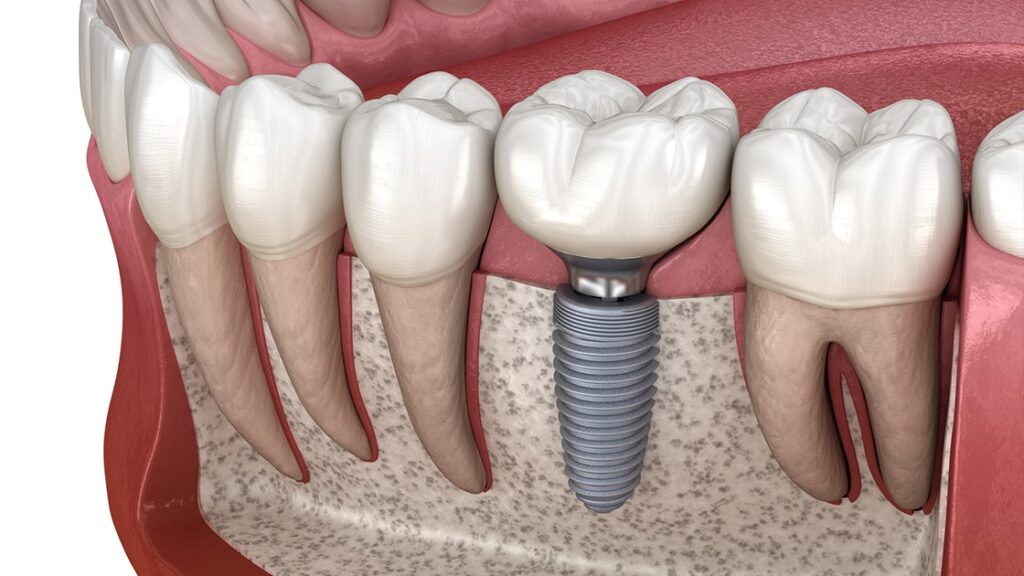Dental implants are medical devices surgically implanted into the jaw to restore a person’s ability to chew or their appearance. They provide support for artificial (fake) teeth, such as crowns, bridges, or dentures. Most dental implants are made of titanium.
Basic types of implants:
The most common types of dental implants are endosteal and subperiosteal implants. The main difference is how they’re attached to your jawbone.
Endosteal implants:
This is the most common type of dental implant. It’s shaped like a small screw, cylinder, or blade. It goes in your jawbone and holds one or more replacement teeth, which are also called prosthetic teeth.
Your doctor may recommend an endosteal implant if you already have dentures or bridges.
Subperiosteal implants:
This type of implant is placed on or above your jawbone. It’s a metal post that’s put under your gum and sticks through your gum to hold it in place.
You may get a subperiosteal implant if you can’t wear regular dentures, you don’t have enough natural jawbone to hold an endosteal implant, or you don’t want to do a bone augmentation procedure to build up the bone.
Transosteal implants:
A transosteal implant is the least used of all types of implants, as it is the most complex. One reason is that it involves placing a metal plate on the jawbone’s underside. Screws are then drilled through the jawbone to secure the plate.
Because of this, transosteal implants can only replace missing lower teeth. However, they may be the only option for patients who have severe bone resorption. They may not have enough bone to support an endosteal or subperiosteal implant.
Mini Dental Implants:
Mini dental implants have the same structure as regular implants, but they’re smaller. Unlike conventional implants, they’re comprised of a one-piece screw that’s less than 3mm in diameter and includes a ball-shaped end that protrudes from the jawbone. The use of mini dental implants is implied in cases where conventional implants cannot be placed. Like when you don’t have:
- The ability to undergo invasive surgery
- Enough time to go to repeat dental visits
- Enough bone in the jaw for a full-sized implant
The Main Benefits of Dental Implants
Dental implants have an impressive long-term success rate of up to 98%. That’s a good enough reason to make you consider them as your first choice when replacing lost teeth.
Tooth implants, however, have many other benefits and advantages. Let’s take a closer look at some of them.
- The closest thing to natural-looking teeth
- Provides stimulation to the jawbone
- Most people can get qualify for dental implants
- Dental Implants Are Your Best Option For Replacing Lost Teeth
While they can’t beat natural teeth, they’re your best option to replace the ones you’ve lost. With properly-placed tooth implants, you can make your remaining teeth and gums healthier.


